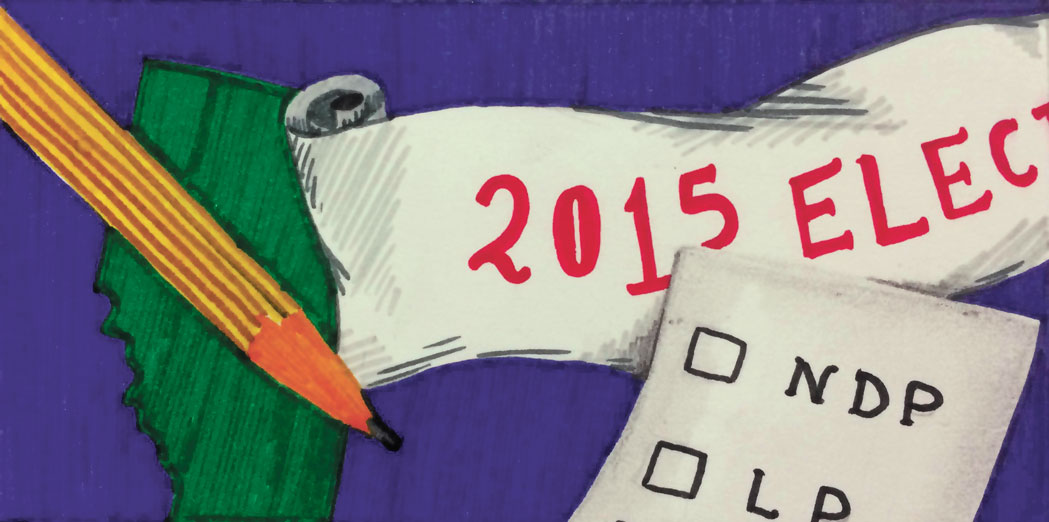
The left must unite this spring
These are strange times in Albertan politics. The low price of oil has driven the legislature mad with panic. Danielle Smith, the once strident leader of the Wildrose, led a coup against her own party. Long-time Liberal leader Raj Sherman resigned. Progressive Conservative Premier Jim Prentice has transformed his party from stale bread back into a provincial leviathan. And though nothing’s official, Alberta’s pundits have bet on a spring election.
In the face of a likely PC majority, the Liberals and the NDP must put their differences aside and cooperate next election. If they contest each other in every riding, they’ll split the left vote again, leaving no effective opposition to drastic cuts in public spending.
Prentice is looking for ways to raise $7 billion for the next budget. The provincial government relies on oil royalties, which plummeted this winter with the price of West Texas crude. He’s ruled out raising corporate taxes, and a provincial sales tax is unlikely. This leaves higher income taxes and cuts to public services. Prentice knows both will be unpopular, so he wants an election before the budget to give his party time to weather the backlash.
If the PCs win a wild majority, expect more cuts to post-secondary education. In 2013, funding cuts led to a loss of programs, enrolment cuts and eventual market modifiers across Alberta. Other public services should expect a similar fate.
The diminished Wildrose Party won’t raise a fuss. They’re pressuring Prentice to cut spending instead of raising taxes. A left-leaning coalition of the NDP and the Liberals is the only opposition that will defend public services. But despite their frailty as opposition, neither the Liberals nor the NDP have shown much interest in cooperating.
Interim Liberal leader David Swann said his party will not seek a merger before the election. NDP leader Rachel Notley rejected both merging and cooperating with other parties. The NDP has become more popular under Notley, but they’re still far from being serious contenders.
The only hope of cross-party cooperation came when Liberal MLA Laurie Blakeman proposed the Liberals merge with the Alberta Party. The Liberals rejected it, and for good reason.
The Alberta Party is enthusiastic, but they won’t play an important role this spring. They placed fifth amongst parties in the 2012 election, receiving far fewer votes than the fourth-place NDP. They didn’t win a single seat, and their leader, Greg Clark, lost an important by-election in October.
Clark was duped by his opponent, education minister Gordon Dirks — who’s campaign tactics amounted to “blatant political opportunism,” according to Alberta’s ethics commissioner — and he did put up impressive numbers in the by-election.
But none of this will matter come spring. Anyone who can spot Clark in a lineup remembers him as yesterday’s noble loser. The biggest contribution he and his party can make is to pull their roster of no-shot candidates out of the election to prevent any further split on the left.
The numbers from 2012 are clear. The only realistic opposition on the left will come from cooperation between the Liberals and the NDP. Anything else is a fantasy.
Too much is at stake for these two parties to squabble. Neither will make meaningful gains on their own. If the Liberals and the NDP care about the issues they champion, they’ll put their differences aside this spring and find a way to work together.
Riley Hill, Gauntlet Editorial Board
